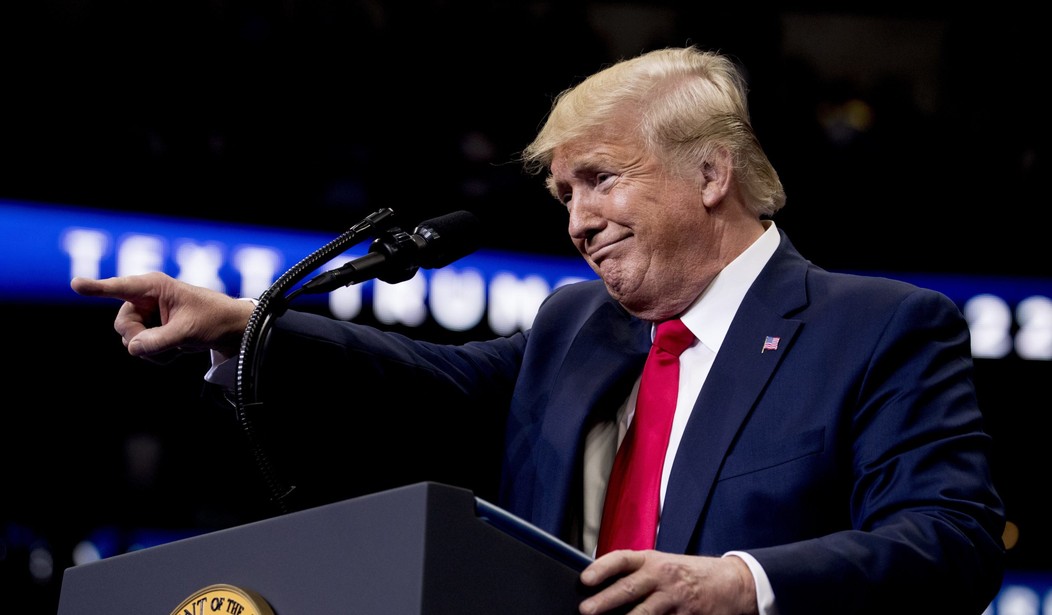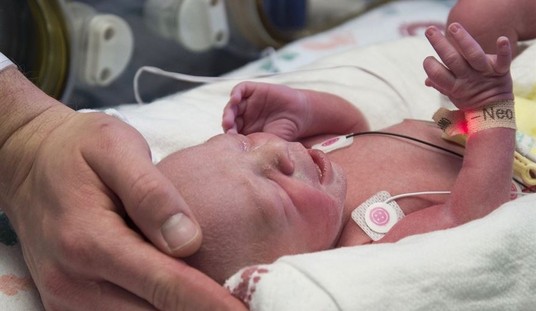On Wednesday, President Donald Trump held a White House ceremony to celebrate his confirmation of more than 150 federal judges. In what may be the president’s most consequential achievement as of yet, he has taken huge strides in reversing the kind of liberal activist judiciary that enshrined abortion in Roe v. Wade (1973) and same-sex marriage in Obergefell v. Hodges (2015). His confirmation of originalist judges dedicated to applying the plain meaning of the text of the Constitution is a victory for the rule of law and a return to the Founders’ view of the judiciary.
“My administration and Republicans in Congress have now confirmed more than 150 federal judges and to be honest with you it’s substantially higher than that,” Trump declared. He said the current count is 157, but predicted, “We should have about 182 federal judges” shortly.
President @realDonaldTrump and Republicans in Congress have confirmed more than 150 federal judges! pic.twitter.com/dreKFPyw3i
— The White House (@WhiteHouse) November 6, 2019
As the president tweeted after the event, the Republican Senate has confirmed “157 FEDERAL JUDGES who will uphold our Constitution AS WRITTEN, a profoundly historic milestone and a truly momentous achievement!”
“This is a historic milestone for President Trump and the country both in terms of the number of circuit court judges appointed and their exceptional qualifications and independence. President Trump has kept his promise to the American people,” Carrie Severino, chief counsel and policy director of the Judicial Crisis Network, said in a statement celebrating the president’s judicial wins.
Kelley Shackelford, president, CEO, and chief counsel at the religious liberty law firm First Liberty Institute, called Trump’s judicial record “nothing short of astounding. In just three years we’ve seen a record number of judges dedicated to originalist Constitutional principles nominated and confirmed to the federal judiciary, potentially changing the course of history. As an organization committed to defending religious freedom, we are thrilled with the confirmation record of the President’s judicial nominees who are faithful to protecting our First Amendment rights.”
Trump’s remaking of the federal judiciary terrifies liberals who often pressure activist judges to rewrite the law from the bench. The backlash to Supreme Court nominee Brett Kavanaugh — with liberal groups preparing signs against any Trump nominee before Kavanaugh’s nomination was even announced and hundreds of protesters arrested for unlawful demonstrations — illustrated liberal fears that they would lose the ability to force their worldview on Americans through the judiciary.
When the founders envisioned the Supreme Court, they did not intend nominations to be this contentious. Courts have always been important, but their job is to protect the rule of law, not reinterpret the law to fit their fancy. The over-politicization of the Court can be traced to the left’s acceptance of a “living Constitution” idea that undermined the rule of law and let loose the dogs of political warfare in the arena the founders intended to be least political.
The left has long treated the text of the Constitution as malleable. Woodrow Wilson, one of the fathers of the “living Constitution” idea, argued that Congress should have the most power when he thought it would benefit him, and then he argued that the presidency should have the most power once he became president. Convenient.
In his book “Constitutional Government in the United States” (1908), this worst of American presidents wrote that “living political constitutions must be Darwinian in structure and in practice.” In other words, they must evolve to suit the times.
In Roe v. Wade (1973), the Supreme Court reinterpreted the 14th Amendment as a right to abortion. Ironically, at the time the 14th Amendment was being ratified, abortion laws were being tightened, not loosened. Furthermore, the plain text of that amendment — which states that no state can “deprive any person of life, liberty, or property, without due process of law” — not only fails to mention abortion, but could be used as an argument to defend the lives of unborn babies.
To achieve this ruling, the Court stretched the “penumbras of the Bill of Rights” to include a right to privacy — a legacy of the 1965 contraception case Griswold v. Connecticut — and extended that into a right to abortion.
Similarly, in Obergefell v. Hodges (2015), the Supreme Court case legalizing same-sex marriage, Justice Anthony Kennedy wrote a “right to dignity” into the Constitution, twisting the Constitution which had long sanctioned laws against homosexual practice into a document enshrining a right to same-sex marriage.
Both of these decisions — Roe and Obergefell — forced legal changes on the states, arguably violating the 10th Amendment (“the powers not delegated to the United States by the Constitution, nor prohibited by it to the States, are reserved to the States respectively, or to the people”). Congress, not the Supreme Court, should make law on hot-button issues like abortion and same-sex marriage.
Yet liberal activist judges have also taken aim at Trump’s policies. Just this week, a federal judge appointed by Barack Obama struck down Trump’s new policy protecting health care workers from being forced to participate in abortion — on the grounds that Trump’s policy was too “coercive.” Trump’s policy defended religious freedom and conscience, but according to an Obama-appointed judge, any rejection of Obama’s policy removing such freedom is itself coercive.
Activist judges have struck down Trump policies on: work requirements for Medicaid; loosening environmental restrictions; orders to tighten federal enforcement of immigration law; his temporary travel ban; and much more.
While the Founders did intend the federal branches to act as checks on one another, this is not what they had in mind. According to the Constitution, Congress should make the laws, the president should enforce them, and the courts should judge in legal disputes based on the law. Sadly, the Progressive movement led Congress to abrogate its lawmaking power to executive agencies, making the president more powerful than the Founders intended — and creating a fourth branch of government unaccountable to the people.
President Trump’s work to rein in the activist judiciary are a strong step in the right direction to restoring the Founders’ vision, but it is not enough, and a Democratic president could reverse the gains Trump has made.
Thanks to many of you here today, my Administration and Republicans in Congress have now confirmed 157 FEDERAL JUDGES who will uphold our Constitution AS WRITTEN, a profoundly historic milestone and a truly momentous achievement! https://t.co/s7u6wjAvjB
— Donald J. Trump (@realDonaldTrump) November 6, 2019
Follow Tyler O’Neil, the author of this article, on Twitter at @Tyler2ONeil.









Join the conversation as a VIP Member